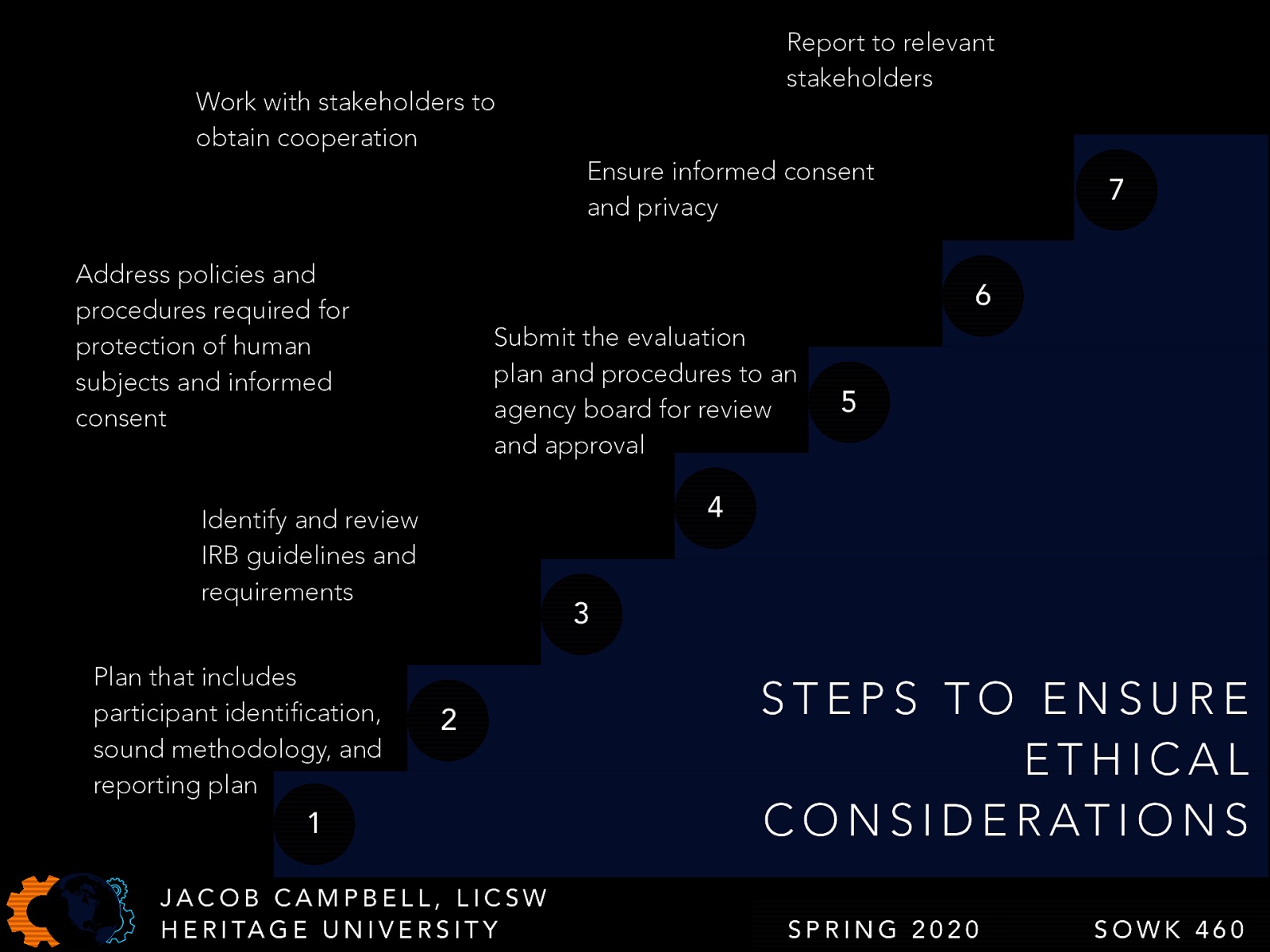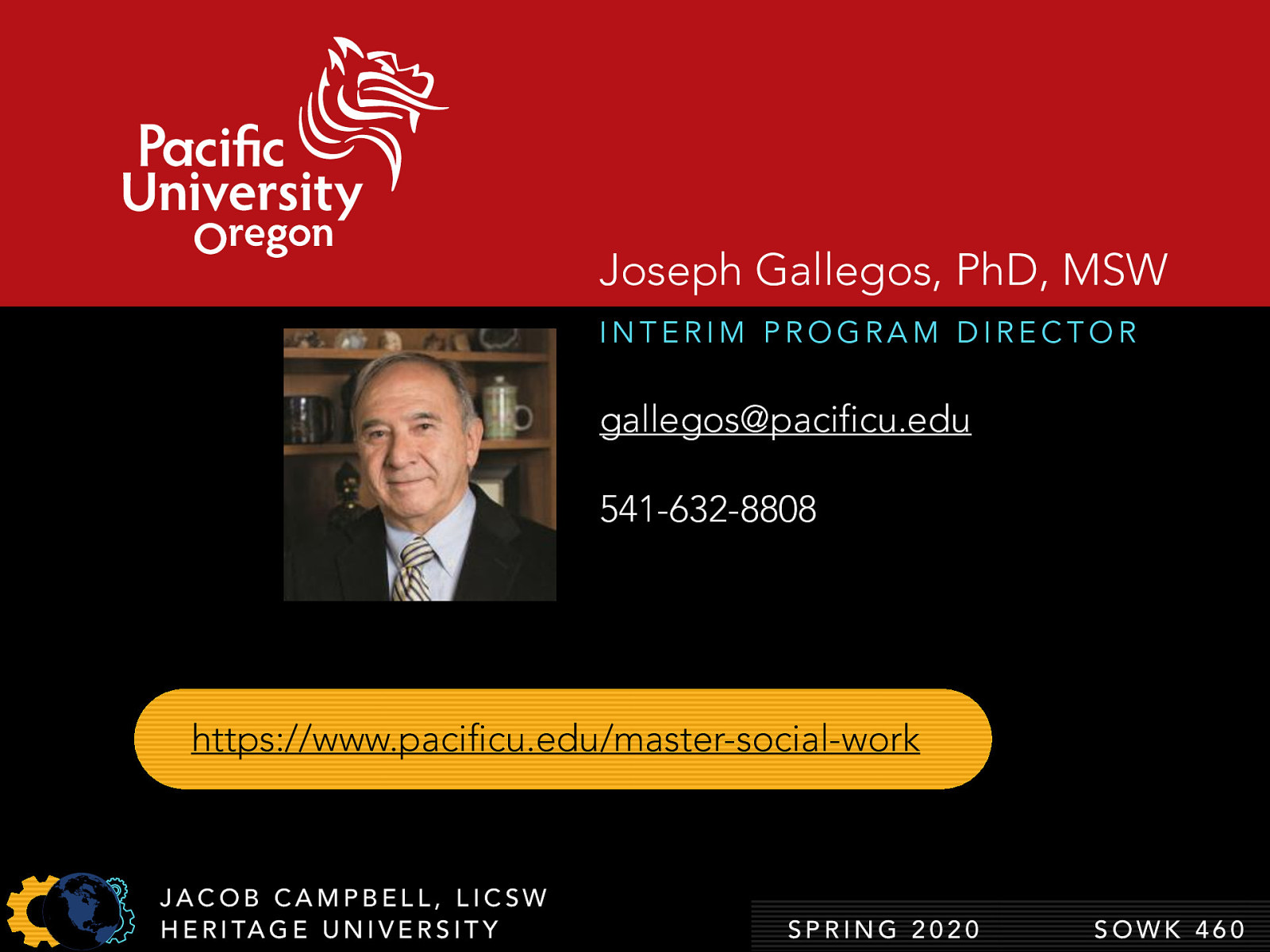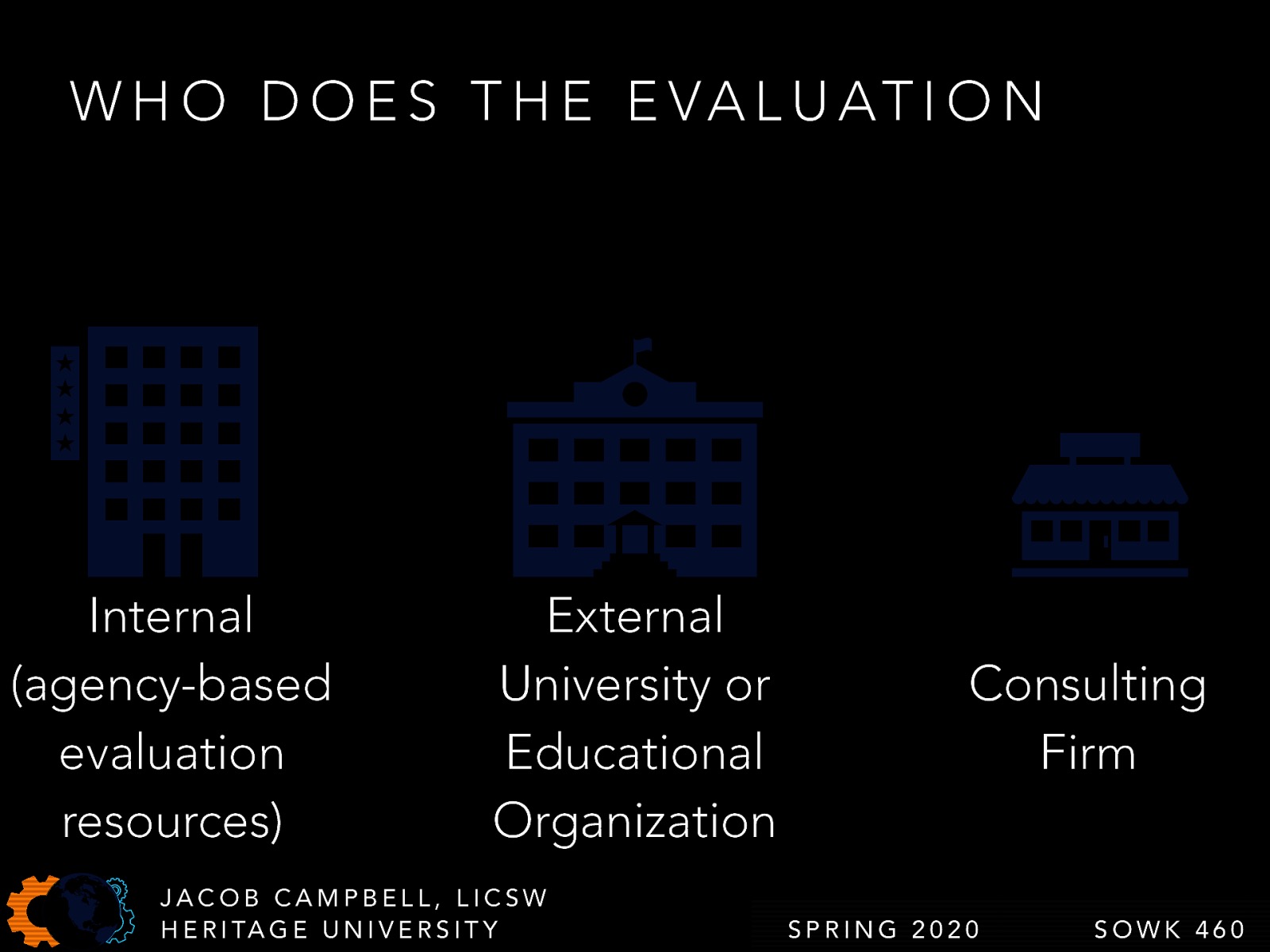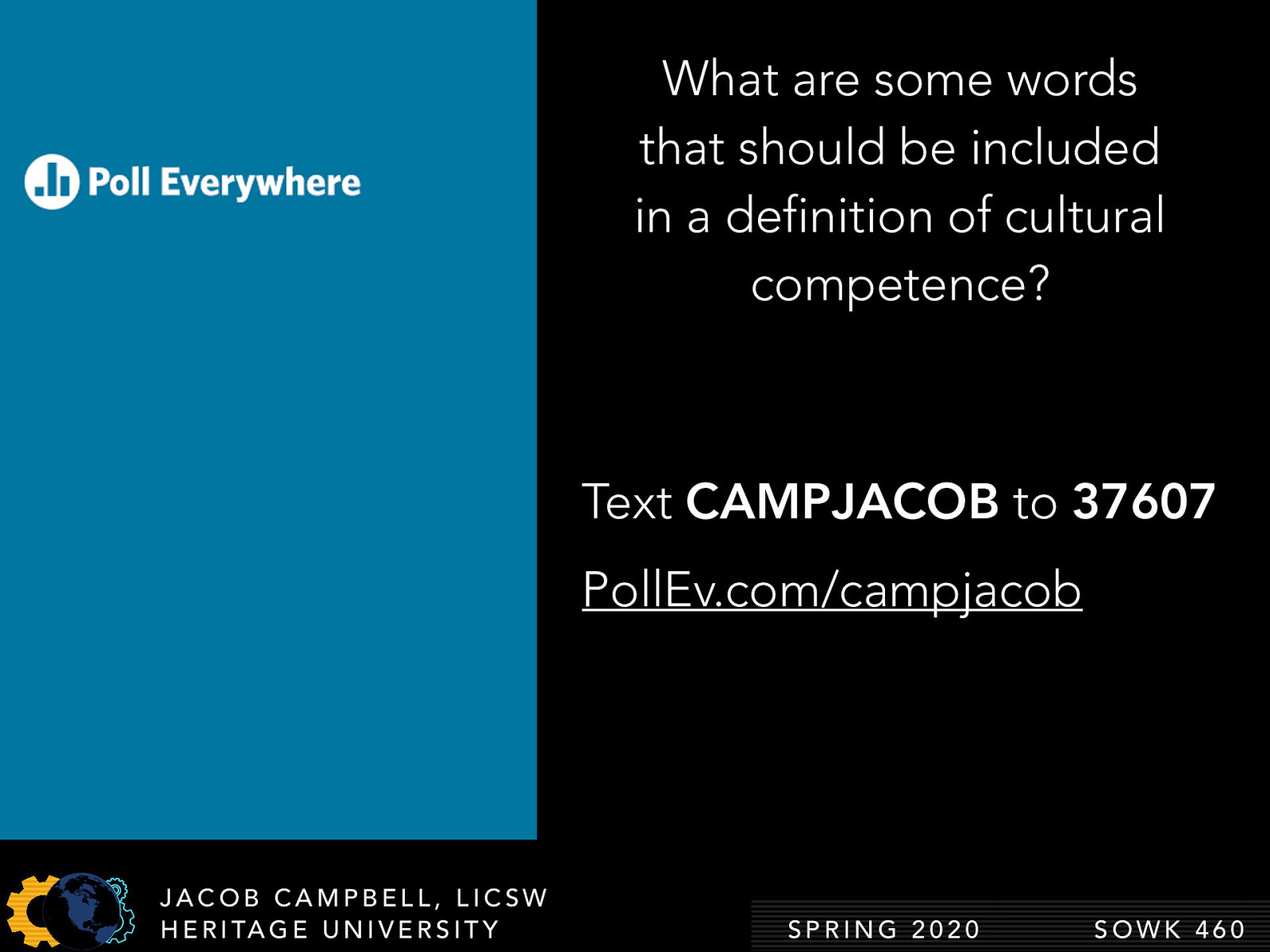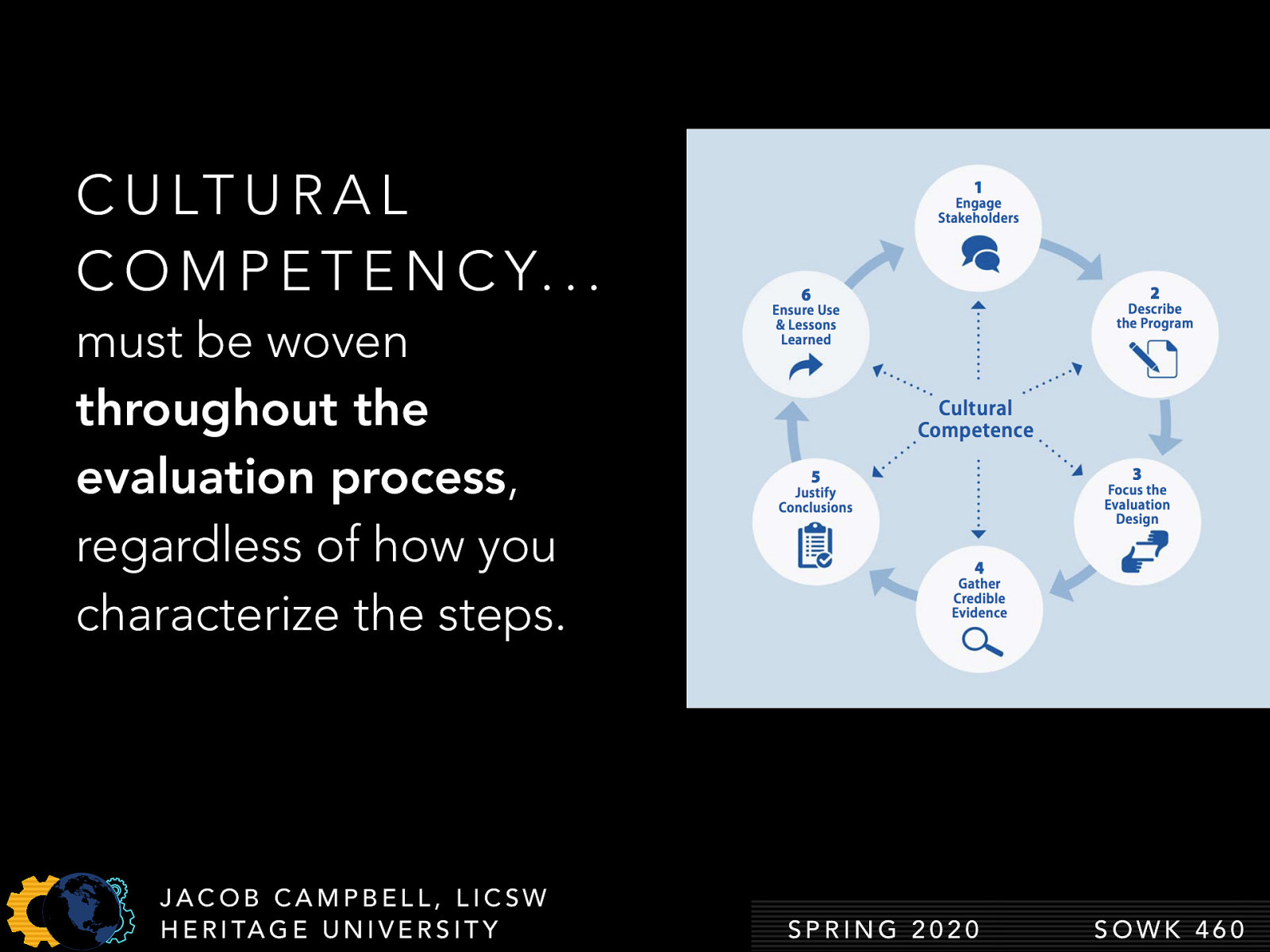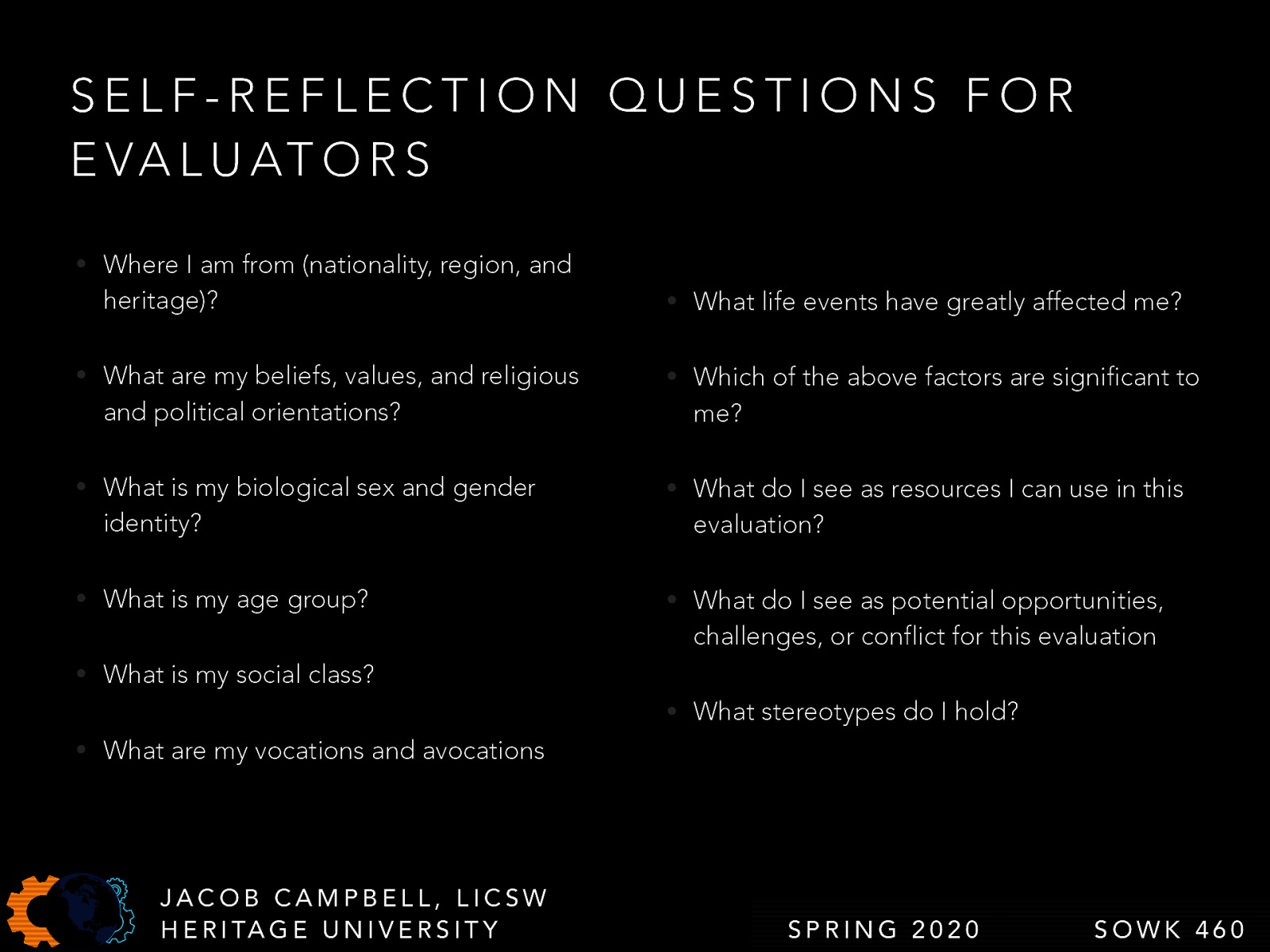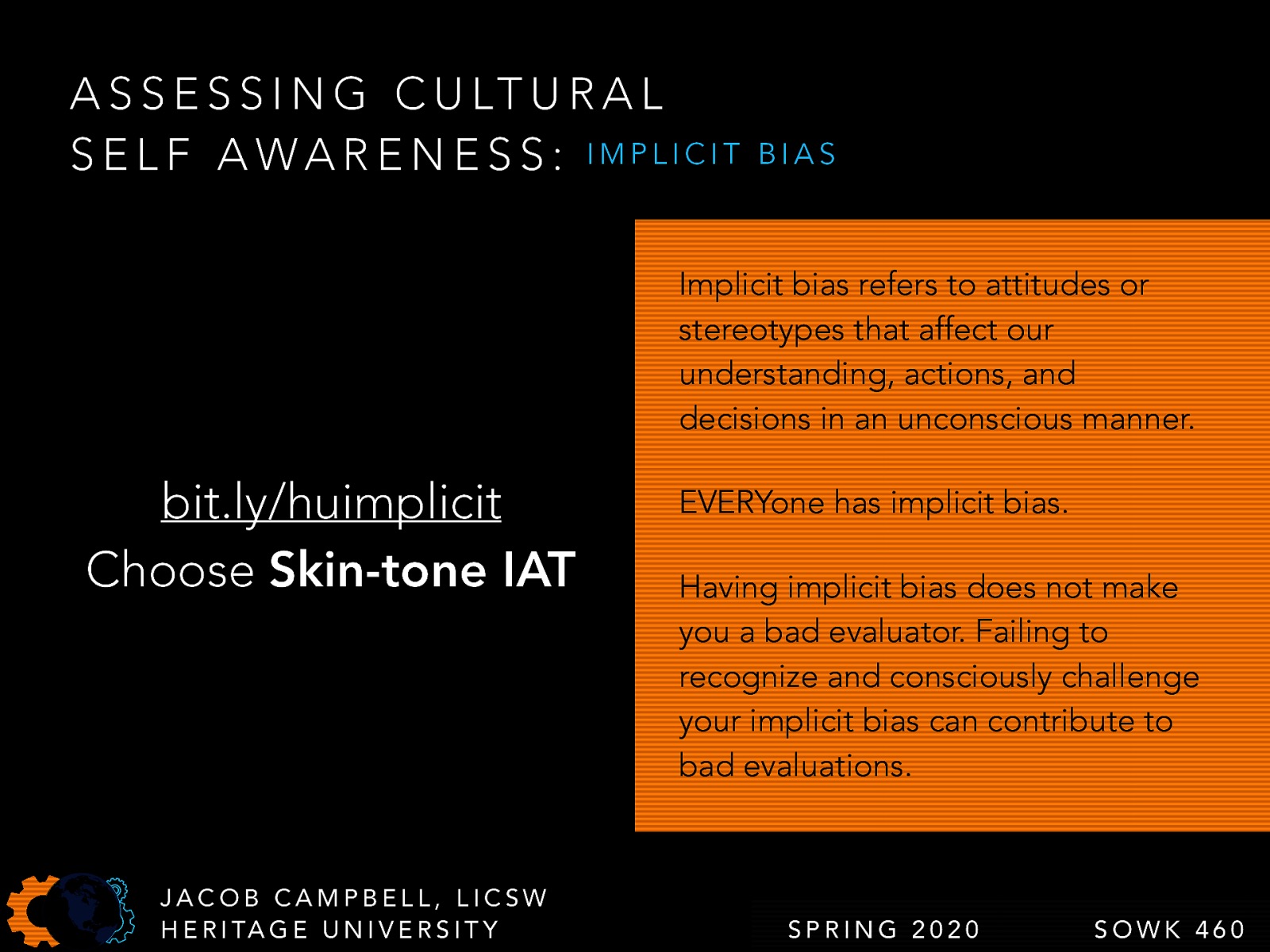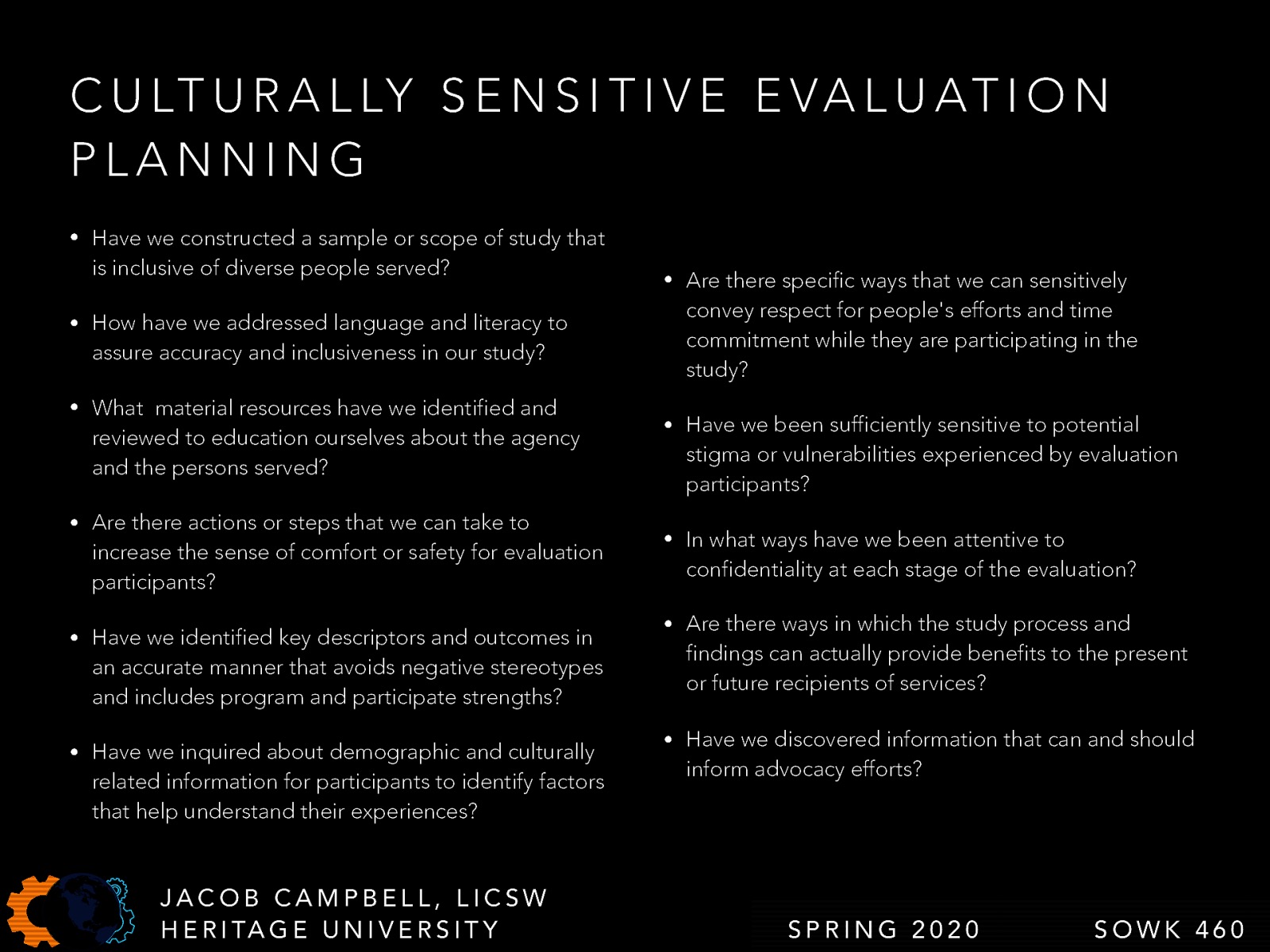Spring 2020 SOWK 460 Week 05 - Ethical Issues & Cultural Competency
A presentation at Heritage University in February 2020 by Jacob Campbell and is tagged with Heritage University, BASW Program, SOWK 460w
Description
This week we focus on how ethics and cultural competency connect to program evaluation.
The agenda is as follows:
- Ethics and program evaluation
- Steps in an ethical program evaluation
- Special presentation from Pacific University Oregon
- Cultural competence
- Implicit bias
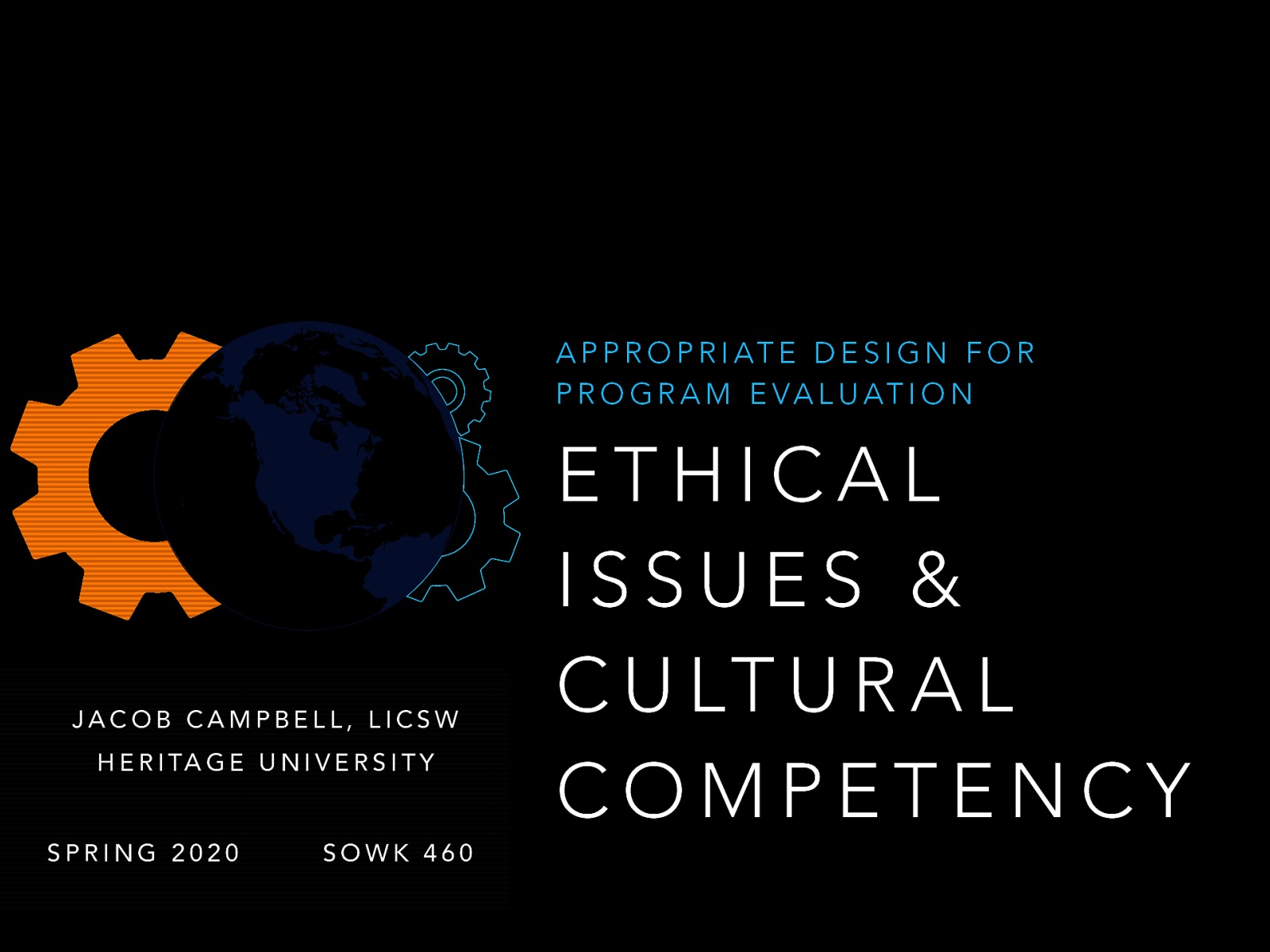
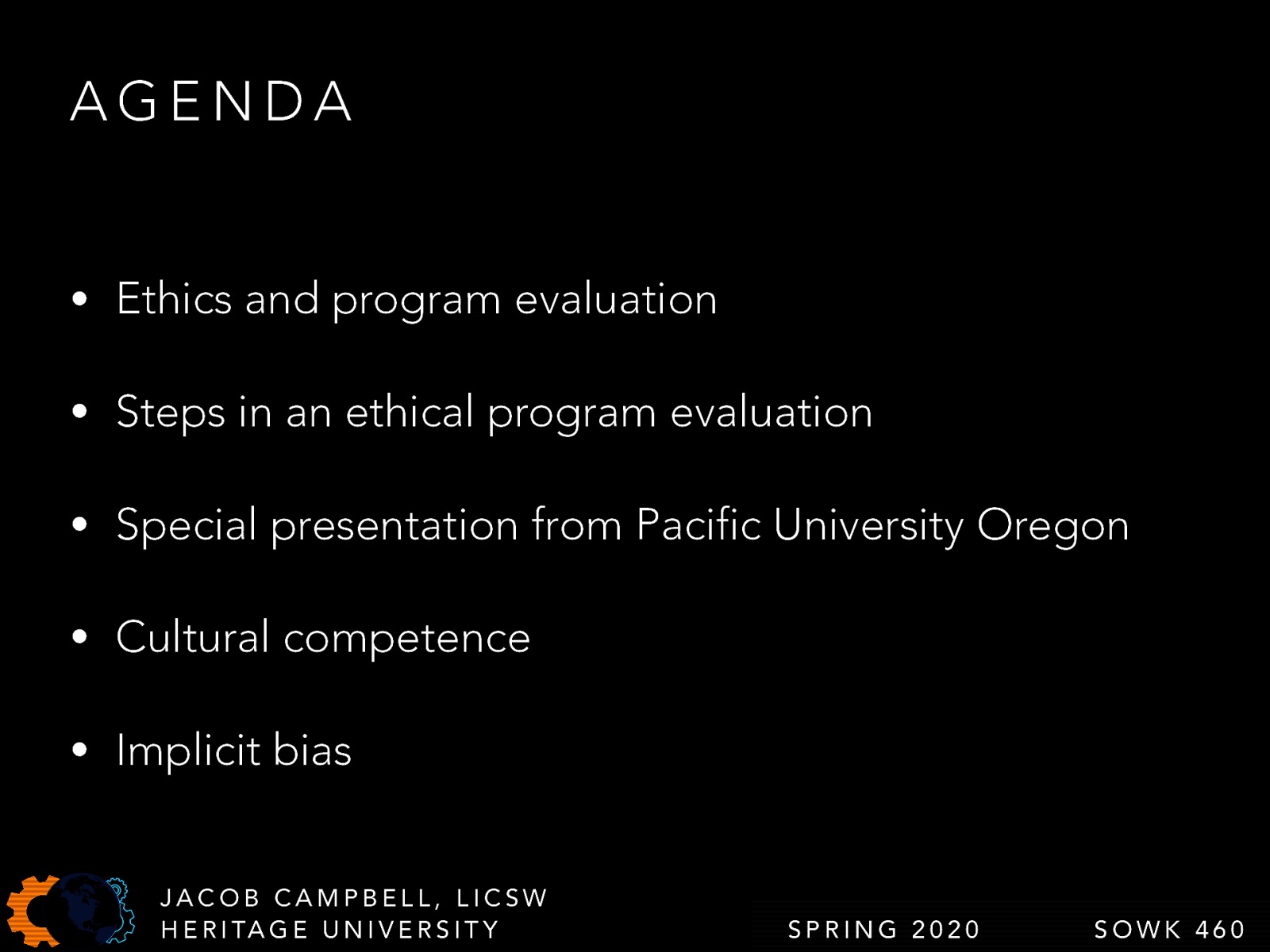
![[Small Group Activity] Working in groups of 4-6, brainstorm the top 10 ways to conduct a program evaluation in an unethical manner. [Whole Class Activity] Have a representative come to the front, of the room. Go round robin have each group representative share a different unethical practice until the lists have been exhausted and not repeating any.](https://presentations.jacobrcampbell.com/dVuk5o/deck-4814-large-2.jpeg)
![There are some things that we can do as practitioners to help safeguard against unethical behavior in program evaluation Assume harm and risk: Always risk… [Whole Class Activity] Brainstorm examples of what some of these risks might be Identify and address risk: Risks should be documented and explicitly discussed as well as planned to help mitigate. Think process for IRB. Cultivate mutual responsibility: between parties involved in the development/implementation of the program evaluation Incorporate scrutiny: Work with stakeholders, for blindspots Understand the setting: Unable to understand the risk to the population unless understand the setting and population Avoid deception: Openness and transparency](https://presentations.jacobrcampbell.com/dVuk5o/deck-4814-large-3.jpeg)
